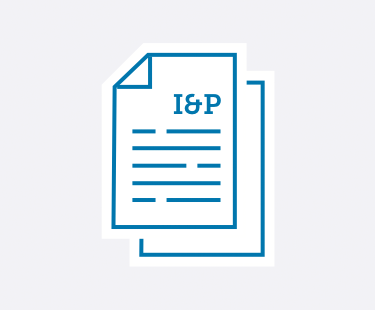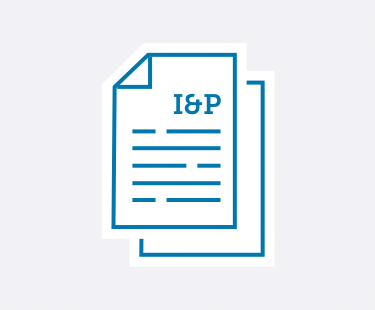

Learn practical strategies to handle emerging trends and leadership challenges in private schools.
No matter if you’re a School Head, Admission Director, Development Director, Board member, or any other private school administrator—Ideas & Perspectives®, ISM’s premier private school publication, has strategic solutions for the pervasive problems you face.
- Tuition not keeping pace with your expenses? In I&P, explore how to use strategic financial planning to create your budget and appropriately adjust your tuition.
- Enrollment dropping off? Discover how to implement the right admission and enrollment management strategies that engage your community—and fill your classrooms.
- Trouble retaining teachers? Learn how you can best support your teachers using ISM’s Comprehensive Faculty Development framework. Your faculty members will become more enthusiastic about their roles—which ultimately improves student outcomes.
- Fundraising campaigns not as successful as you’d hoped? Implement ISM’s practical advice and guidance to build a thriving annual fund, construct an effective capital campaign, and secure major donors—no matter your community size or location.
- Not sure how to provide professional development—for you and your staff? Learn ways to develop and fund a successful professional development strategy. You can improve teacher-centered satisfaction and growth, which in turn strengthens student-centered learning.
- Problematic schedule? You can master the challenges of scheduling with the help of ISM’s practical advice, based on our experience with hundreds of schools and our time-tested theories.
- And so much more.
I&P has shared targeted research, up-to-date insight, and sound theory with school leaders since 1975. More than 8,500 private school decision-makers find the answers to their schools’ administrative and governance matters in our advisory letter. We give you the strategic answers you need.
As an ISM Silver or Gold member, you not only receive issues online and in print 10 times a year, but you have access to 900+ articles in our web archive. Need help? It’s at your fingertips! Learn more and sign up for ISM's membership here.
Search
See the articles from our latest issue of Ideas & Perspectives.
The Role of the Committee on Trustees in Board Succession Training
Volume 36 No. 6 // April 25, 2011
ISM is often asked its perspectives on succession planning at the Board level. ISM's views on this are grounded in a long-established set of conclusions about the relationships between Boards and institutional excellence. These views—more accurately, ISM conclusions—strongly emphasize "Board-as-task-group" over "Board-as-bureaucracy." Thus, while ISM opposes the oft-used corporate concept of succession planning per se, we support the concept of succession training. ISM's position has little to do with the most common approach to this, i.e., future Board Presidents serving first as Board Vice Presidents. There is an inherent problem with the whole concept of "vice president," and the problem is apparent in many organizations, not just Boards of Trustees: Other than presiding in the absence of the President, the position's responsibilities are elusive.
1. Already a member? Click here to login.
2. Not a member? Click here to become a member.
3. Not sure? We'll help you figure it out.
The School Head: Accountability Beyond the Head’s Objectives
Volume 36 No. 5 // April 5, 2011
ISM is often asked whether or not the School Head should be held accountable for operations outcomes other than those specified in the Head Support and Evaluation Committee’s annual set of Head’s objectives. (ISM has written recently about the differences between the relatively short and more complex HSEC’s annual objectives, on the one hand, and the much longer and more task-specific list found in the Annual Administrative Agenda.) ISM’s standard answer to the question is, “Yes, the Head may be held accountable for outcomes outside the objectives list, provided there is reliable evidence pertaining to such outcomes, provided those outcomes are actually under the Head’s control, and provided those outcomes are periodically noted (by the HSEC) as being included in the Board’s ongoing list of expectations for the School Head.”
1. Already a member? Click here to login.
2. Not a member? Click here to become a member.
3. Not sure? We'll help you figure it out.
The Enrollment Management Cycle
Volume 36 No. 5 // April 5, 2011
Private-independent schools have traditionally faced a challenge with maintaining full enrollment. This challenge has been exacerbated in the past few years. The economic downturn, coupled with the growth of charter and magnet schools, has changed many areas of the educational landscape. Even as the economy improves, private-independent schools may find that families have decided these no-cost alternatives are acceptable, and must exert every effort to achieve and maintain full enrollment. In the past, full enrollment has been seen as the result of two effective strategies that occur in the school—but without any direct link between them. Recruitment (strategies designed to attract and enroll new families) is in one silo. Re-recruitment (strategies to convince families to re-enroll) is in another.
1. Already a member? Click here to login.
2. Not a member? Click here to become a member.
3. Not sure? We'll help you figure it out.
Conducting a Communications Audit
Volume 36 No. 5 // April 5, 2011
With the explosion of available communication instruments in the last few years, independent schools need to be more strategic about their communications. The longstanding vehicles of the paper/electronic newsletter and blast emails are being supplemented--and perhaps in some cases replaced--by social media as a preferred medium. Your school's resources will be taxed to maintain a "broad-brush" approach in the future. Communications with constituents need to be more purposeful and less reactive.
1. Already a member? Click here to login.
2. Not a member? Click here to become a member.
3. Not sure? We'll help you figure it out.
The Three Types of Need-Based Financial Aid
Volume 36 No. 4 // March 15, 2011
Need-based financial aid involves understanding a family's ability to pay the tuition your school charges, and then negotiating (whether formally or informally) a discount strategy to meet as much of the need as possible. It is important to note, however, that understanding need is a complex process. While we would all like a simple formula for assessing need, no two families' needs are exactly alike. With this in mind, ISM offers the following distinctions to understand the differing uses of need-based financial aid.
1. Already a member? Click here to login.
2. Not a member? Click here to become a member.
3. Not sure? We'll help you figure it out.
ISM Success Predictor No. 4: Highly Specific Course/ Professional Development Faculty Contracts
Volume 36 No. 4 // March 15, 2011
In an earlier issue of Ideas & Perspectives, we offered ISM's 20 Success Predictors for the 21st Century. As that article explained, ISM expects successful 21st Century Schools to make radical changes in both structure and function to achieve and sustain stability and excellence. We emphasized that the 20 Success Predictors were designed as speculative forecasts of what ISM expects to be needed to achieve long-term stability and excellence in the coming years. Readers were reminded that the current (third) iteration of the ISM Stability Markers®--the primary lens through which ISM views private-independent schools--does not lose its general utility as an evidence-driven set of benchmarks for long-term stability and programmatic excellence. Thus, ISM maintains its focus on the Stability Markers, but offers a future-focused set of Success Predictors as accompanying guidelines. (Note: There is some overlap between the two lists. Several of the ISM Stability Markers are also Success Predictors for the 21st Century.) This article focuses on ISM Success Predictor No. 4: Teachers will be hired and rehired based upon highly specific course/professional development contracts.
1. Already a member? Click here to login.
2. Not a member? Click here to become a member.
3. Not sure? We'll help you figure it out.
ISM Success Predictor No. 17: Budgeting for Professional Development
Volume 36 No. 3 // February 17, 2011
In an earlier issue of Ideas & Perspectives, we offered “ISM’s 20 Success Predictors for the 21st Century.” As that article explained, ISM expects successful 21st Century Schools to make radical changes in both structure and function to achieve and sustain stability and excellence. We emphasized that the 20 Success Predictors were designed as speculative forecasts of what ISM expects to be needed to achieve long-term stability and excellence in upcoming years. Readers were also reminded that the current (third) iteration of the ISM Stability Markers®—the primary lens through which ISM views private-independent schools—does not lose its general utility as an evidence-driven set of benchmarks for long-term stability and programmatic excellence. Thus, ISM maintains its focus on the Stability Markers, but offers a future-focused set of Success Predictors as accompanying guidelines. (Note: There is some overlap between the two lists. Several of the ISM Stability Markers are also Success Predictors for the 21st century.) This article focuses on ISM Success Predictor No. 17: 3% of the overall budget allocated to professional development.
1. Already a member? Click here to login.
2. Not a member? Click here to become a member.
3. Not sure? We'll help you figure it out.
Your Strategic Financial Plan: Expenditure Control for the Long Run
Volume 36 No. 3 // February 17, 2011
ISM's recommended 13-line, six-year format for your strategic financial plan serves as a ready reminder to you, the School Head, that today’s expenditure excesses have long-term consequences. In the two tables shown below, only Line 5 (cash operating expenses) and Line 9 (the annual cash surplus/deficit or profit/loss) are shown, for ease of explanation.
1. Already a member? Click here to login.
2. Not a member? Click here to become a member.
3. Not sure? We'll help you figure it out.
Addressing Bullying and Sexual Misconduct
Volume 36 No. 3 // February 17, 2011
As the competition between private and public schools intensifies each year, it is not always the luxuries or differentiators associated with attending a private school that become more critical. Rather, the basic but vital The ISM 37-School Parent Survey: Why Families Can Afford Your Schools Tuition is of immense concern to private school parents and students. While clearly one of the most difficult and unpleasant topics to attempt to get one's head around, there are no more important issues for you to address than potential misconduct and bullying toward your students. At issue here is not only concern for the student's physical and emotional safety, but the reality that students simply cannot learn effectively when they do not feel safe.
1. Already a member? Click here to login.
2. Not a member? Click here to become a member.
3. Not sure? We'll help you figure it out.
Understanding Faculty Culture Differences Across School Divisions
Volume 36 No. 2 // January 28, 2011
While ISM has long written about faculty culture, and there has been the sense of a monolithic culture, the reality is that each division in our schools seems to have a particular character. Of course, if your school only has one division, then unity is a much simpler concept to understand.
1. Already a member? Click here to login.
2. Not a member? Click here to become a member.
3. Not sure? We'll help you figure it out.


